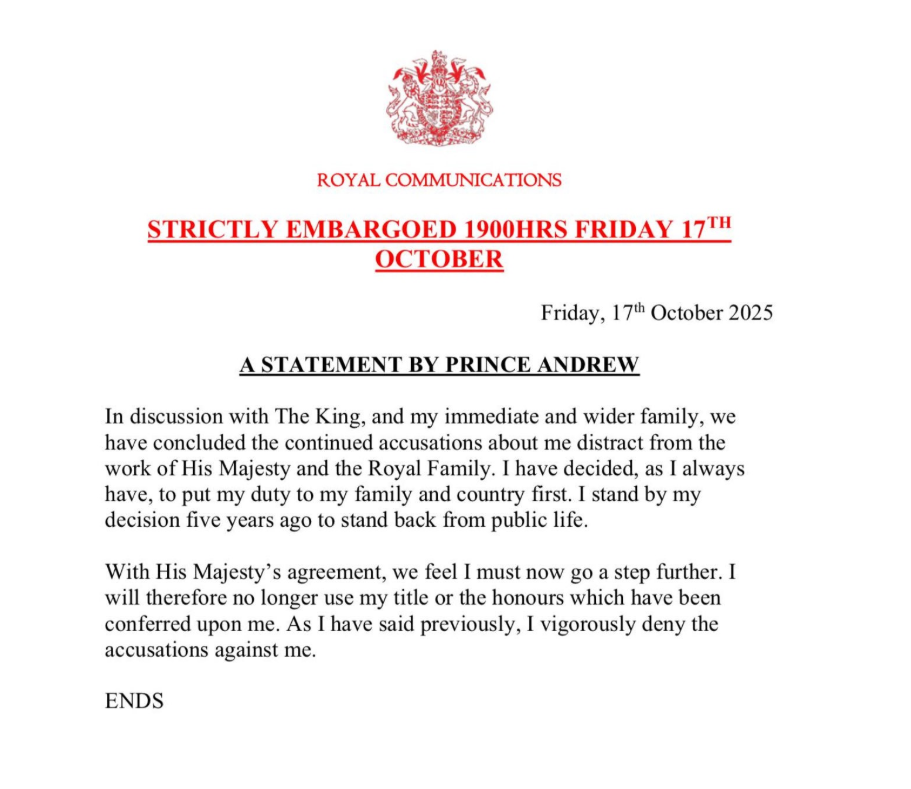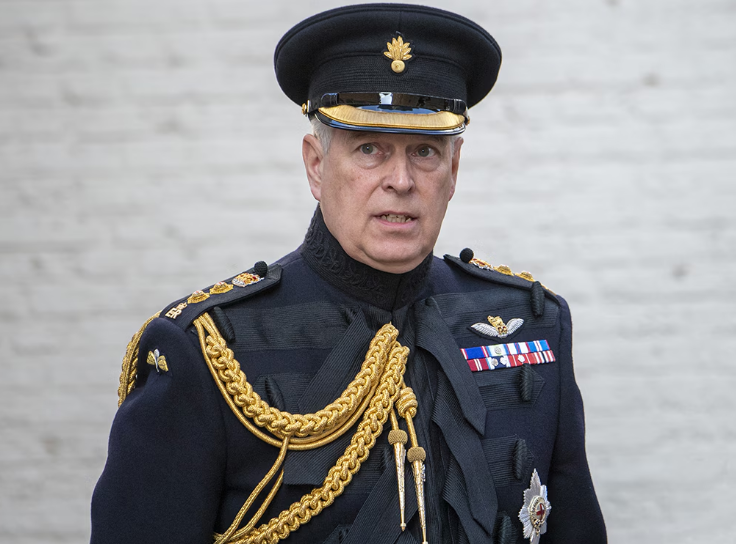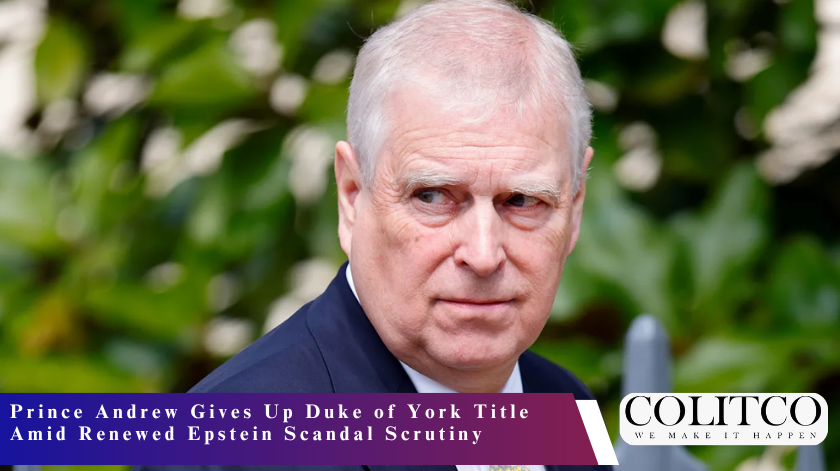Prince Andrew has announced he will no longer use his Duke of York title amid mounting scrutiny related to the Jeffrey Epstein scandal. The decision follows years of criticism regarding his conduct and associations with the late convicted sex offender. This move aims to protect the reputation of the Royal Family and allow its work to proceed without distraction.

Relinquishing Titles with Royal Consent
On October 17, 2025, Prince Andrew issued a statement confirming his voluntary surrender of the Duke of York title and other honours. He said this decision came “in discussion with the King, and my immediate and wider family,” who agreed the ongoing accusations “distract from the work of His Majesty and the Royal Family.” He affirmed his duty to family and country as his priority and reaffirmed his 2019 decision to step back from public life. The prince emphasised, “I have consistently denied the allegations made against me.”
Though Andrew will cease using his Duke of York title and forfeit honours such as Knights Grand Cross Royal Victorian and Royal Companion of the Garter, he retains his status as a prince by birthright. Official removal of the dukedom requires an Act of Parliament and has not yet occurred. His decision marks a further step away from public roles and royal involvement.

Background of the Epstein Controversy
Prince Andrew first stepped back from public duties in 2019 amid controversy linked to his relationship with Jeffrey Epstein. That year, he faced widespread condemnation following a BBC interview addressing allegations by Virginia Giuffre, who accused him of sexual assault as a minor. Andrew denied the claims, but the interview was criticised for lack of empathy towards Epstein’s victims and implausible explanations.
In January 2022, Andrew returned to military roles and relinquished royal patronages after legal proceedings failed to dismiss civil abuse allegations. He later settled a lawsuit with Giuffre for an undisclosed amount. Throughout, Andrew has maintained his innocence and denied meeting Giuffre as she described.
Renewed Scrutiny and Email Revelations
Recent developments intensified scrutiny when emails surfaced showing Andrew had contact with Epstein beyond previously stated dates. An email from February 2011 suggested the pair remained in communication after Andrew claimed the relationship ended in 2010. Experts consider these revelations a serious breach of public trust, marking a critical point in Andrew’s public standing.
Monarchy’s Efforts to Preserve Reputation
The decision to relinquish the Duke of York title follows consultations involving King Charles and the Prince of Wales. At 76, King Charles is focused on securing a modern, reputable monarchy for the future, as Prince William has emphasised the importance of the institution evolving positively. Andrew’s ongoing controversies have conflicted with this vision.
The royal family has been proactive in distancing itself from the negative impacts of Andrew’s scandals. By voluntarily stepping back further, Andrew and the palace aim to limit reputational damage and refocus attention on the Crown’s duties.
Prince Andrew’s Royal and Military Background
At 65, Andrew is the second son of the late Queen Elizabeth II and eighth in line to the throne. His early public image was that of a naval officer, serving in the Falklands War during the 1980s. Over two decades in the Royal Navy ended in 2001, after which he took on royal duties. However, his reputation has steadily declined since his association with Epstein became public, affecting his royal engagement and honours.
Also Read: Jeffrey Epstein Files: An In-Depth Record from Beginning to Present
Continuing Status and Public Life
Despite this latest step, Andrew remains a prince but will no longer perform royal duties or hold public roles. He continues residing at his Windsor mansion and retains the formal titles until any parliamentary actions proceed. The palace’s statement reiterated the focus should return to King Charles and the royal family’s broader responsibilities.
Final Remarks
Prince Andrew’s decision to give up the Duke of York title and other honours marks a significant moment in the ongoing Epstein scandal fallout. It reflects an effort to shield the monarchy from further controversy and legal complications. The move also underscores the royal family’s commitment to adapting to changing public expectations and safeguarding its image amid intense international scrutiny.
This announcement concludes a decade-long saga of public and legal challenges faced by Prince Andrew, producing lasting effects on his role within the British monarchy and public life. The wider royal family continues to emphasise duty, service, and restoration of trust while navigating these complex challenges.












